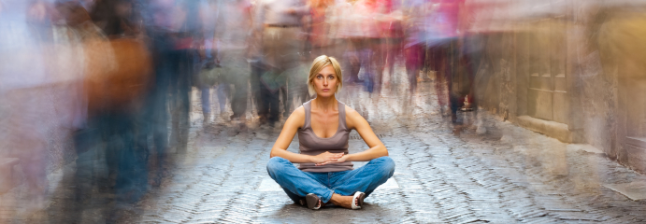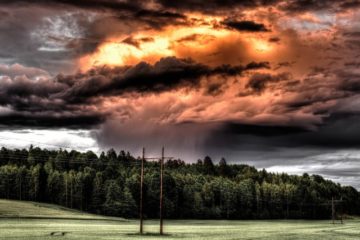Waging Peace in a Polarized World

[This was written after the July 2016 murder of five Dallas police officers and the racial tensions that led up to it.]
Despite all the horror and ugliness from this past week, I have seen so much good and beauty. I have seen black and white friends calling each other and saying, “Hey, I don’t know what all is going on, but I want you to know I really love and appreciate you and our friendship.” On Sunday I saw the beauty of our church in its fullest – black people and white people, people with good jobs and people without a dollar to their name, coming together just to be with each other, to just sit in a place that is different than what we’ve seen and heard in the world this past week. There was so much love in the room you could feel it.
So many of the questions that we all have been asking is, “What is going on?” and “What do we do about it?”
The first question deserves a team of PhDs, but the second question I at least have some answers to.
The problems of the world often seem so big, so overwhelming, that we feel like we can’t do anything about them. Maybe we don’t feel powerful enough, or influential enough, or knowledgeable enough to make a difference in the things that bother us about the world. Sometimes these feelings can lead us to anger, frustration, depression, or just resigned indifference or willful distraction.
So often in these moments when the world seem so messed up, I think of Jesus and what things were like in his world. Jesus’ world was incredibly messed up and so divided between the powerful and oppressive and everyone else. Even though I believe Jesus could have, Jesus never challenged the powerful and the oppressive for their thrones. No. Jesus lived, taught, died, and rose again like the politicians and the powers were fighting on the wrong battle lines. Like the world would be won and lost on the soul level, on the individual level, on the grassroots level. Jesus acted like he believed the world would be saved through the small things.
In 33 AD if you asked who was more powerful and influential – Jesus of Nazareth or Caesar of Rome. The question would seem ridiculous. Almost no one would have even known who Jesus was. Today if you asked the question, few people could tell you who the emperor of Rome was at the time and almost everyone could tell you who Jesus is. All the Caesars and their kingdoms have passed away but the Kingdom of Jesus, the Kingdom of God is still here and still growing.
If you want to see God’s Good Kingdom, if you want to see the Dream of God spreading in the world you often have to look at the small things – the small acts of love and kindness, the acts of selfless sacrifice that will never make the news, the acts of beauty and faithfulness that the Caesars of the world overlook and don’t take seriously. It is through those things that the Shalom of God, the deep and abiding peace of God is working its way into the fabric of the world.
Little by little, two steps forward, one step back, the world is being saved through the small things.
So what are some of these little things? How do we wage peace in a world that is increasingly polarized? Here are just a few ideas:
- Give the world back to God – The weight of the world was never meant for you or I to carry. Trust God with the things that bother you. Worst case, even if the particular situation doesn’t change, I believe you will be changed in it; and sometimes that makes all the difference in the world, sometimes that is enough.
- Turn down the news – The news is a tricky beast. It is good to know what is going on in the world so we read or watch the news. However, news agencies know that the best thing to keep us plugged in is fear and anxiety. It is easy to overdose on the news and become full of fear and anxiety. By limiting your exposure, you have a better chance of being that non-anxious presence that you need yourself to be and an anxious world needs you to be.
- Turn down social media – Have you ever noticed how nasty people can be sometimes when they are driving their car through traffic. They can see the other people in the cars around them, but would likely never treat people the way they do without the buffer of the car between them and other people. I think social media operates in a similar way. It isn’t real human contact, it’s not real connection, not really. Social media lets us interact with each, but with a buffer between us, and this tends to bring out the same jerkiness in people that we often seen on the roadways – people treating each other and talking to each other in ways they likely never would if the buffer wasn’t there. It fosters polarization.
- Step outside and interface with real humans – Most days, if you do this, it will remind you that the world is a good and beautiful place and that most people are good and kind and interesting. This will also help you stay more grounded where you are. Maybe some days, the big news in your life is not some event that happened a thousand miles away, but that your neighbor just had a baby or your closest friend just got a cancer diagnosis.
- Seek out relationships with people who are different than you – This one is HUGE! If all you know of black people is what you see on the news, or all you know of white people is what you see on certain people’s social media feed, or all you know of LGBTQ people is what you see on selected footage from gay pride week, etc. you are going to have a skewed perspective that is susceptible to polarization and bigotry. If you are a Hilary supporter, make friends with a Trump supporter and vice versa. If you are concerned about police misconduct, make friends with police officers. If you are anti-gun, make friends with people who are pro-gun. Work hard to make sure you have friends of different racial and economic groups. We live in a world where people digitally and literally de-friend and tune out people that they don’t agree with, creating a virtual constellation of echo chambers. Polarization can’t help but happen in an environment like this. Having respectful and emotionally honest relationships with people whom you can openly talk about your different opinions and perspectives with will enable you to be an ambassador of reconciliation and de-polarization in a world that desperately needs it. These relationships will take time and work, but I believe they are worth it, maybe even vital.
- Join a church or community group that is racially, economically, and politically diverse – We human beings are so powerfully defined and shaped by the company we keep. Being a part of a diverse community keeps us from standing outside the group, outside the microcosm of humanity and society, and feeling judgmental and superior towards it. It teaches us how to get along with others. It matures us as we live out a formal or informal commitment to the good of a group through all the ups and downs of human relationships. It teaches us humility, patience, and love as we realize that we are sometimes the one who needs to be forgiven, the one who needs a second chance, a “do-over.”
The world will be saved through the small things and our polarized world needs more people to take these small steps towards peace and reconciliation.



No Comment